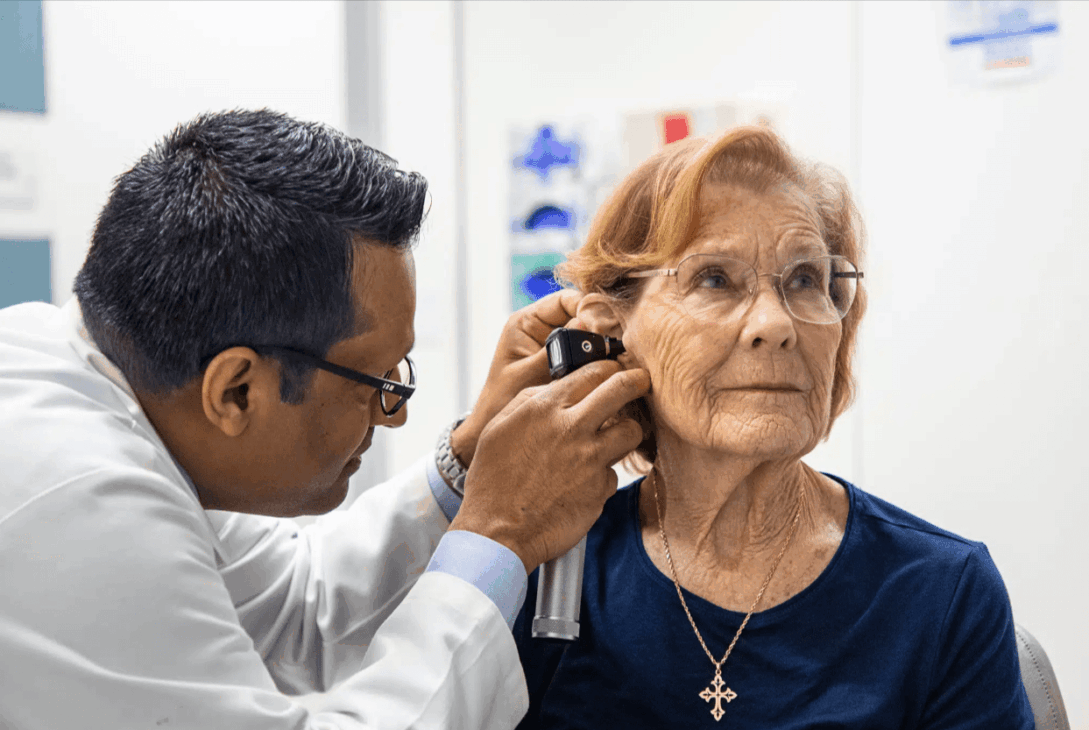Understanding Audiology: Why Choosing the Right Hearing Aid Doctor Matters
Audiology is a specialized field that focuses on the diagnosis, treatment, and management of hearing and balance disorders. As hearing plays a crucial role in our daily interactions and quality of life, it is imperative to seek the guidance of a qualified hearing aid doctor. Choosing the right specialist can dramatically affect the effectiveness of your hearing aids and your overall hearing health. This choice is not just about convenience; it is about ensuring that you receive personalized care, cutting-edge technology, and support that fits your unique needs.
The Intersection of Expertise and Empathy in Audiology
At the core of excellent audiology practice lies a balance between technical expertise and empathy. Hearing aid doctors, also known as audiologists, must possess a deep understanding of intricate auditory systems and the latest advancements in hearing aid technology. But equally important is their ability to empathize with patients, acknowledge their concerns, and understand the emotional ramifications of hearing loss. The best audiologists recognize that each patient is unique, viewing their role as not only healthcare providers but also as trusted partners in the journey toward improved hearing. This empathetic approach helps establish strong patient relationships built on trust, making patients feel supported throughout the entire process—from diagnosis to treatment to regular assessments.
What Makes a Hearing Aid Doctor Stand Out?
A standout hearing aid doctor distinguishes themselves through a variety of attributes and qualifications. First and foremost, they must be licensed and possess the relevant certifications, ensuring they adhere to industry standards. Beyond credentials, their reputation in the community often reflects their level of care and commitment. Patients frequently value a doctor who dedicates sufficient time to fully evaluate their needs and explain possible options, rather than rushing through appointments. In addition to the standard procedures, an outstanding audiologist stays current with the latest research, technology, and trends in hearing health, which can profoundly impact patient outcomes. Last but not least, excellent communication skills are vital; a great audiologist should be able to explain complex concepts in easily understandable terms, empowering patients to make informed decisions.
Key Qualities to Look for in a Houston Hearing Aid Doctor
In Houston, where diverse populations and varying healthcare needs converge, finding an adept hearing aid doctor is crucial for optimal audiology care. There are several key qualities to consider in your search.
Credentials and Experience: Why They Matter
The foundation of a reliable hearing aid doctor in Houston begins with their credentials. Audiologists typically hold advanced degrees in audiology and are required to be licensed by the state. Relevant certifications from professional organizations, such as the American Speech-Language-Hearing Association (ASHA) or the American Academy of Audiology, further bolster their credibility. In addition to academic background, hands-on experience is a significant asset. Seasoned audiologists bring invaluable knowledge garnered through years of practice, enabling them to handle various complex cases efficiently. Whether you are seeking assistance with age-related hearing loss, tinnitus management, or pediatric audiological needs, an experienced audiologist will have the skills necessary to customize solutions that address your specific challenges effectively.
Patient-Centric Care: The Importance of Listening to Your Needs
Patient-centric care is about prioritizing the patient’s individual needs and values, ensuring their experience is tailored to them. Dallas-area patients should seek out audiologists who actively listen to their concerns and involve them in the decision-making process. A quality hearing aid doctor will take the time to conduct comprehensive assessments that consider your lifestyle requirements, communication preferences, and audiological challenges. Moreover, ongoing support post-fitting is essential; it showcases a commitment to patient success rather than a one-time service. Look for practices that offer follow-up appointments, adjustments, and training on how to make the most of your hearing aids, indicating their dedication to optimizing your hearing health journey.
Questions to Ask Your Hearing Aid Doctor in Houston
Asking the right questions not only demonstrates your engagement in your audiological care but also helps you assess the suitability of the hearing aid doctor for your needs. The following queries can help illuminate vital information concerning your potential audiologist.
Unpacking the Audiology Terminology: What You Should Know
Hearing loss can be laden with complex jargon that may confuse patients. It’s vital to clear this fog early in the process, which can be achieved through knowledgeable questioning. Inquire about specific terms like “audiogram,” “decibels,” “hearing threshold,” and “speech recognition” to grasp the mechanics behind your hearing loss and the recommended interventions. A competent audiologist will not only explain these concepts but will also help you understand how they relate to your personal situation. Furthermore, ask about available programs that may subsidize the cost of hearing aids and other services. Financial insight will empower you to navigate the often daunting world of healthcare fees.
Essential Inquiries about Hearing Aid Technology and Options
The landscape of hearing aids has dramatically transformed in recent years, making it crucial to be informed about the options available. Different types of hearing aids, including behind-the-ear (BTE), in-the-ear (ITE), and completely-in-canal (CIC) models, offer varying benefits depending on the user’s level of hearing loss, aesthetic preferences, and lifestyle requirements. Don’t hesitate to ask your doctor about the latest technological advancements, such as Bluetooth connectivity, noise-cancellation features, rechargeable batteries, and telecoil systems. These innovations significantly enhance user experience, so understanding what is available can provide insight into what might best suit your needs. Additionally, inquire about the trial period that allows for testing in everyday environments, which is expedient to evaluate functionality.
Exploring the Latest Advances in Hearing Aid Technology
With technological progress, the effectiveness and ease of use of hearing aids have elevated to unprecedented heights. Understanding these advancements is integral to selecting the best auditory devices for your lifestyle and requirements.
From Analog to Digital: The Evolution of Hearing Aids
The journey of hearing aid technology has transitioned dramatically from analog to digital systems. Analog devices amplify sound waves linearly, limiting their customization capabilities. In contrast, digital hearing aids analyze and convert sound waves into digital signals. This capability allows for sophisticated processing that enhances sound quality and clarity. Modern digital hearing aids include features like automatic adjustments based on environmental conditions, directional microphones that focus on sounds in front of the user, and adaptive noise reduction systems that filter out background noise. Such advances mean that users can navigate social situations, playing a pivotal role in maintaining or enhancing their quality of life through improved communication.
Customization and Personalization: Finding Your Perfect Fit
Customization and personalization are crucial aspects that define modern hearing aids, enabling listeners to tailor their experience specifically to their environments and needs. Many hearing aids now come with apps that connect to smartphones, allowing users to fine-tune settings according to their preferences. Patients can adjust volume levels, select specific listening modes based on surroundings—like environments with background noise or one-on-one conversations—and even locate lost devices using integrated tracking systems. This intricate personalization makes these devices more user-friendly, ensuring that individuals don’t just hear, but hear well, across various situations. Advanced audiological assessments and consultations will pave the way for making informed adjustments during follow-up visits, ensuring ongoing satisfaction and functionality.
As you seek the best hearing aid doctor in Houston, remember that your hearing health is too important to leave to chance. By understanding the world of audiology, validating the key qualities of practitioners, asking the right questions, and embracing the latest in technology, you can take significant steps toward enhancing your auditory experience and overall quality of life.




